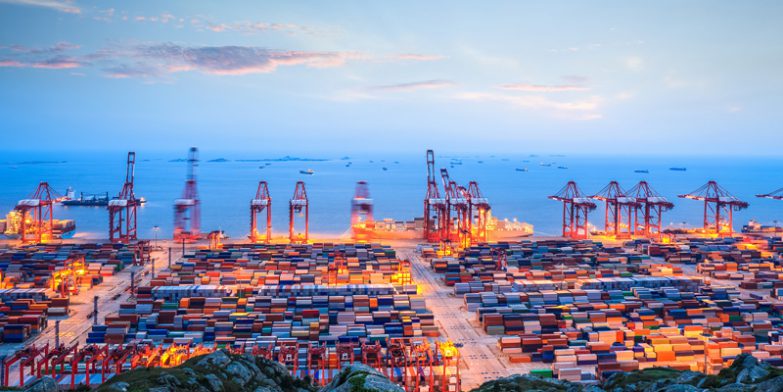
The additional two weeks it takes for ships to sail around the Cape of Good Hope as a result of the Red Sea conflict’s effective closure of the Suez Canal is absorbing capacity when demand has been increasing and now global port congestion is creating delays, which takes out even more capacity.
The container shipping lines have recalibrated their services to cope with the COGH diversion and while there is sufficient capacity to deal with the added transit time, there is not enough slack to deal with other major disruptions, which is why the impact of port congestion on equipment availability and spot rates is being felt relatively quickly.
Congestion at Mediterranean and Asian ports is reducing vessel schedule reliability and is negatively impacting available capacity and with no end in sight for the Red Sea crisis it is likely that congestion and delays will persist through the summer.
Port congestion and delayed vessel schedules is also creating issues with empty container availability, as boxes become delayed in transit, resulting in lower stock availability in the regions and at ports where they are needed.
Ship bunching and congestion has spread to ports in Asia including Port Klang, Shanghai, Qingdao, Guangzhou and Shenzhen, with vessels waiting up to four days to berth at Shanghai, two days at Qingdao and up to three days at Port Klang.
Singapore’s container volumes have risen nearly 9% in 2024, with average berthing delays of three to five days and some ships experiencing longer, due to vessel bunching, terminal congestion and longer dwell times as carriers discharge more containers, to forgo subsequent voyages and catch up on sailing schedules.
Global schedule reliability in April was down 12% on 2023, at 52%, meaning just over half of vessels berthing global were within one day of their scheduled arrival, with average delays almost five days.
The JOC reports that almost 2M TEU (6% of the global fleet) is getting tied up by port congestion, and while that is less than half the post-pandemic levels in North America, it is still massively significant and the second highest since 2008.
Mediterranean
Routing away from the Suez Canal means that cargo is now being dropped at western Mediterranean ports for transshipment to the east of the region, with ships having to wait longer for a berth, as ports like Barcelona and Valencia are overwhelmed.
Container ship calls to the Port of Barcelona reached 196 in May, while 300 container ships arrived at the Port of Valencia in May, the highest number in a year and over 100 were 6K TEU and larger, which means they spend a longer time at the port, with calls averaging 23 hours.
Other more short-term factors such as heavy fog at the Shanghai and Ningbo ports and heavy rains in Southeast Asia have also contributed to global congestion, but while their situation has improved, the transshipment ports are not going to get better over the summer.
Vessel arrival times are becoming more challenging to calculate, as it is no longer just the time between the ship reaching its berth from just outside the port zone, with terminal congestion and rail or truck delays also impacting schedules.
Our Clarity Track & Trace uses 100% verified data, for accurate vessel ETAs, to aid planning, risk mitigation, and demurrage & detention avoidance. LEARN MORE.
If you have any questions or concerns about any of the issues raised here, or would like to discuss their wider implications, please EMAIL Andy Costara.
For US related supply chain questions or to learn more about our services please EMAIL Adam Davies, our Vice President in the United States.





